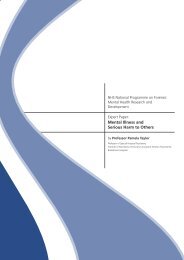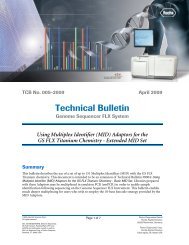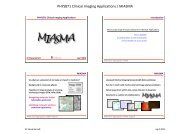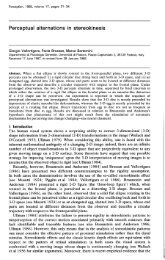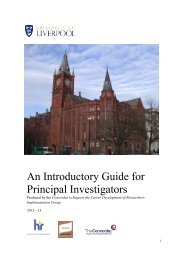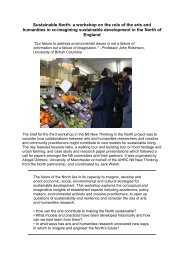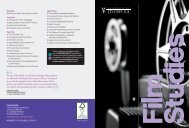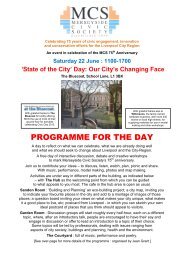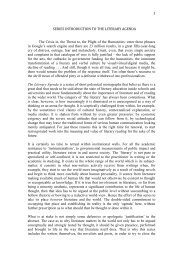Mental Well-being Impact Assessment of Projects funded
Mental Well-being Impact Assessment of Projects funded
Mental Well-being Impact Assessment of Projects funded
Create successful ePaper yourself
Turn your PDF publications into a flip-book with our unique Google optimized e-Paper software.
AsylumLink Merseyside: ‘Better Lives’ project<br />
6. WHAT ARE THE KEY IMPACTS OF THE ‘BETTER LIVES’ PROJECT ON MENTAL HEALTH AND<br />
WELL-BEING?<br />
The MWIA toolkit suggests a four-factor framework for identifying and assessing protective factors<br />
for mental well-<strong>being</strong>, adapted from Making it Happen (Department <strong>of</strong> Health 2001) and<br />
incorporates the social determinants that affect mental well-<strong>being</strong> into four factors that evidence<br />
suggests promote and protect mental well-<strong>being</strong>:<br />
Enhancing control<br />
Increasing resilience and community assets<br />
Facilitating participation<br />
Promoting inclusion.<br />
Participants were introduced to the factors and asked to think about ALM and rate how important it<br />
was to the people using the service and the potential impact that the service could have on the<br />
participants.<br />
The Potential <strong>Impact</strong> <strong>of</strong> the Project on Feelings <strong>of</strong> Control<br />
Enhancing control - the evidence from the MWIA toolkit (Coggins et al. 2007)<br />
A sense <strong>of</strong> agency (the setting and pursuit <strong>of</strong> goals), mastery (ability to shape circumstances/ the<br />
environment to meet personal needs), autonomy (self-determination/individuality) or self-efficacy<br />
(belief in one’s own capabilities) are key elements <strong>of</strong> positive mental health that are related to a<br />
sense <strong>of</strong> control (Mauthner and Platt 1998; Stewart-Brown et al in press).<br />
Enhancing control is fundamental to health promotion theory and practice, and is identified in the<br />
Ottawa Charter as a key correlate <strong>of</strong> health improvement:<br />
“Health promotion is the process <strong>of</strong> enabling people to increase control over, and to improve their<br />
health”. (Ottawa Charter for Health Promotion. WHO, Geneva,1986.)<br />
Lack <strong>of</strong> control and lack <strong>of</strong> influence (believing you cannot influence the decisions that affect your<br />
life) are independent risk factors for stress (Rainsford et al 2000). People who feel in control <strong>of</strong> their<br />
everyday lives are more likely to take control <strong>of</strong> their health (McCulloch 2003). Job control is a<br />
significant protective factor in the workplace, and this is enhanced if combined with social support<br />
(Marmot et al 2006).<br />
Employment protects mental health; both unemployment and job loss increase risk <strong>of</strong> poor mental<br />
health: financial strain, stress, health damaging behaviour and increased exposure to adverse life<br />
events are key factors associated with job loss that impact on mental health (Bartley et al 2006). Job<br />
insecurity, low pay and adverse workplace conditions may be more damaging than unemployment,<br />
notably in areas <strong>of</strong> high unemployment (Marmot and Wilkinson 2006)<br />
As we only had a small number <strong>of</strong> participants attend the workshop, we worked through all <strong>of</strong> the<br />
charts and then identified which components could be changed to create a better environment for<br />
all concerned. It should be noted that ALM is such a positive project and have such a positive impact<br />
on users <strong>of</strong> the centre that it was difficult to decide which components needed attention and could<br />
be addressed within the budget the centre has. This is not to say that nothing needs to change at<br />
30





